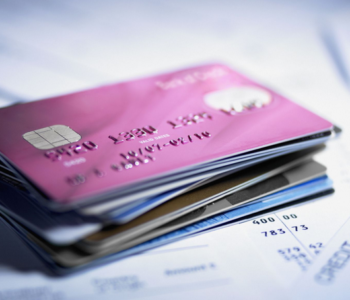 Credit Comparison
Credit Comparison
Comparing Credit Lines: Personal Loans vs. Credit Cards
Choosing the right credit line can significantly impact your finances. Whether you need funds for a large purchase, debt consolidation, or other expenses, personal loans and credit cards offer options. However, each has unique benefits, costs, and uses. This article’ll examine personal loans and credit cards in detail, helping you understand which is best for your needs.

Understanding Personal Loans
Personal loans are lump-sum loans you repay in fixed installments over a set period. They typically have fixed interest rates, which means your monthly payment remains consistent, allowing for easier budgeting. Unlike some other types of credit, personal loans can be used for a wide variety of purposes, from home renovations to consolidating high-interest debt.
When you apply for a personal loan, lenders evaluate your credit score, income, and debt-to-income ratio. Approval rates are generally higher for those with good to excellent credit. Interest rates on personal loans vary but are usually lower than those for credit cards, especially if you have a high credit score.
Understanding Credit Cards
Credit cards offer a revolving line of credit, allowing you to borrow up to a pre-approved credit limit. Unlike personal loans, credit cards do not require you to pay a fixed amount each month. Instead, you have the flexibility to pay only a minimum balance, though this often leads to higher interest charges on the remaining balance.
Credit cards are convenient for everyday purchases and emergencies because you can access credit whenever you need it without reapplying. However, interest rates on credit cards are typically much higher than those for personal loans, especially if you carry a balance month to month. Some credit cards also come with benefits like cash-back rewards, travel points, and consumer protection.
Key Differences Between Personal Loans and Credit Cards
- Repayment Structure
Personal loans are repaid over a specific term, usually ranging from one to seven years, with fixed monthly payments. This structure encourages discipline and a clear timeline for paying off the debt. Credit cards, on the other hand, allow you to make variable payments. While this flexibility can be helpful, it can also lead to prolonged debt if you only make minimum payments. - Interest Rates
Typically, personal loans have lower interest rates than credit cards, making them an appealing choice for those seeking cost-effective borrowing. Credit cards tend to have higher interest rates, which can accumulate quickly if you carry a balance. - Borrowing Limit
With a personal loan, you borrow a fixed amount upfront. Credit cards, however, have a credit limit you can borrow against repeatedly as long as you repay what you borrow. This can be useful for ongoing expenses but can lead to accumulating more debt over time. - Impact on Credit Score
Both personal loans and credit cards can impact your credit score. A personal loan improves your credit mix, which can boost your score. However, missing payments can hurt your score. Credit cards have a different impact, as they affect your credit utilization ratio. Keeping balances low relative to the credit limit positively impacts your score, but maxing out your cards can lower it.
When to Use a Personal Loan
Personal loans are ideal for large, planned expenses. For instance, if you’re looking to consolidate high-interest debt or fund a major purchase like a car or home improvement project, a personal loan can offer a structured way to pay it off. Fixed monthly payments make it easier to budget, and the generally lower interest rate saves you money over time.
When to Use a Credit Card
Credit cards are convenient for smaller, everyday expenses or situations where you need ongoing access to funds. For instance, if you need funds to cover unexpected expenses, a credit card allows you to borrow quickly. Credit cards with rewards or cash-back benefits are also advantageous if you use them for regular purchases and pay off the balance monthly to avoid interest.
Pros and Cons of Personal Loans vs. Credit Cards
Personal Loans:
- Pros: Fixed payments, lower interest rates, structured repayment plan.
- Cons: No ongoing credit access, application process can be slower.
Credit Cards:
- Pros: Ongoing credit access, rewards, and benefits.
- Cons: Higher interest rates and revolving debt can lead to prolonged debt if only minimum payments are made.
Conclusion
Deciding between a personal loan and a credit card depends on your financial goals, spending habits, and repayment preferences. If you’re looking for a structured, low-interest loan for a large expense, a personal loan may be best. However, if flexibility and ongoing credit access are essential, a credit card could be a better choice. By understanding the unique features of each option, you can make an informed decision that best supports your financial well-being.







